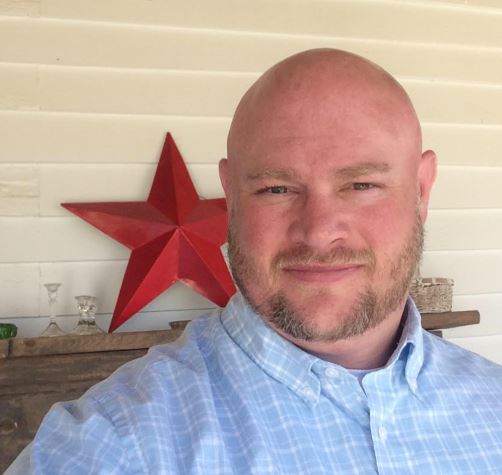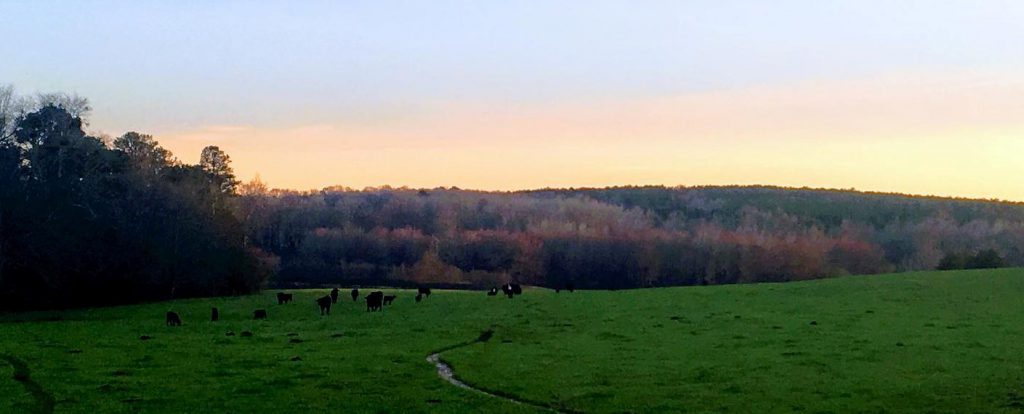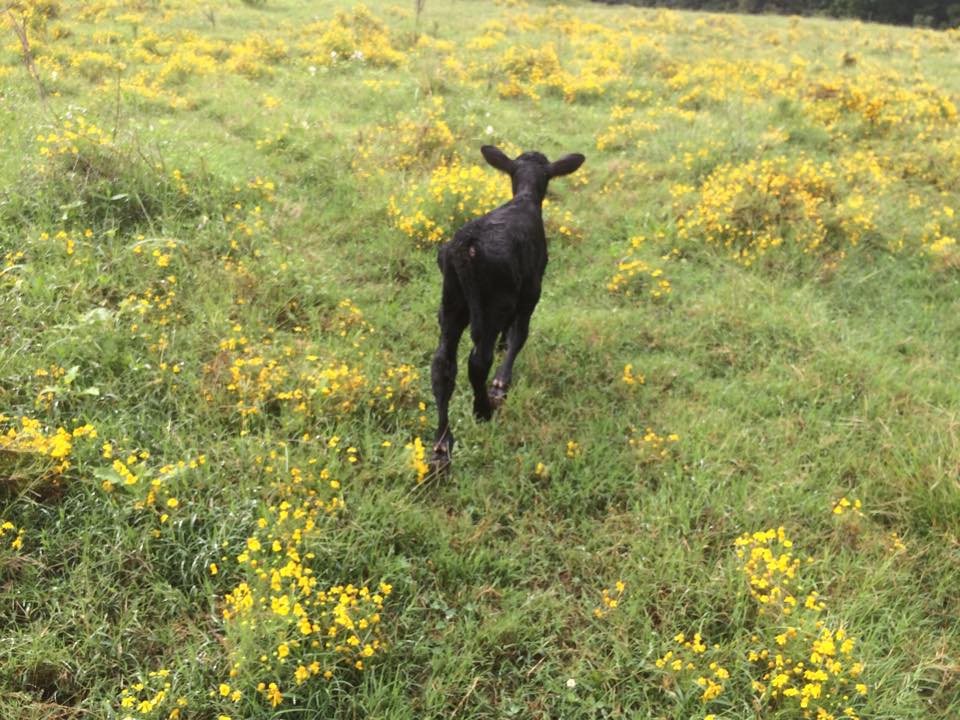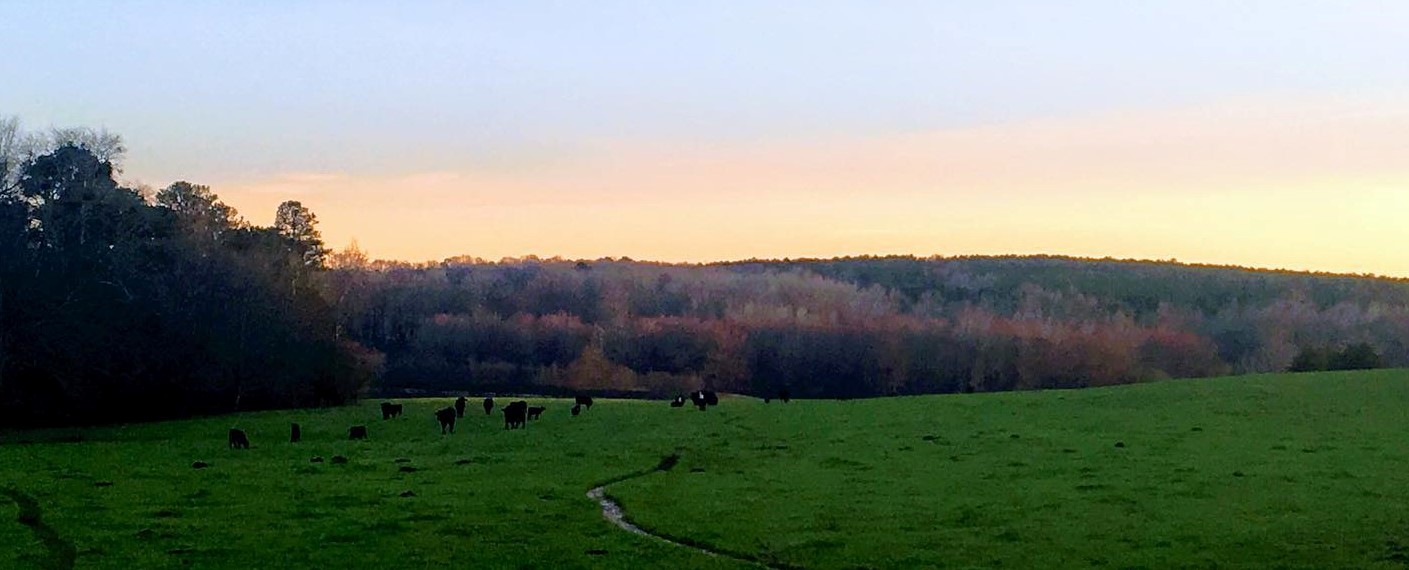A Revelation and a Revolution
Clean, fresh, and local beef changes diets and lives

NOTE: This was written around the time I was working for Emmet as a social media advisor and part-time farmhand.
When Athens writer Dan Jackson said farmer Emmet Cabaniss of Falling Creek Farms was “as much missionary as farmer,” one had to wonder what kind of missionaries Dan was hanging out with.
Oh, sure, he has all the decency and humility you might expect, but there’s also a boisterous playfulness and a bit more irreverence than you might expect from someone handing out clean water in the Congo.
But the salient fact about missionaries is that they have a mission, and that’s where you begin to see what Dan saw. Because Farmer Emmet is definitely on a mission.
To get a glimpse of this calling, look back a few decades when his approach to raising cattle was, as he describes it, something like “better farming through chemistry.” As a nth generation farmer (he has not yet been able to track his family’s farming back to its source) in the 1990s, Emmet had a lot to deal with in the modern world.
Cattle industry consolidation had effectively created a few behemoths against which all small family farms competed. The rise of feedlot finishing and ever-increasing frame weight of cattle made the genteel vision of cattle grazing on expansive ranches seem more like either economic suicide or a quaint lie. Meanwhile, a fairly new federal highway system mostly erased the home field advantage of local farmers by making it cheap and easy to transport beef everywhere.
Emmet entered into this challenging enterprise like a general newly converted to modern warfare. Enemies (army worms, diseases of all stripes, weeds in the fields, etc.) were dispatched with as much violence or toxicity as necessary, and as much precision as possible.
Taking care of his “troops” was not much more pleasant. In his own words:
“I fed the cattle lots of corn byproducts, whole cottonseed, expired cereal, rejected candy and gum, and even chicken litter (yep, that’s just a polite word for chicken poop). I gave them lots of vaccines, antibiotics, wormed them twice a year and threw everything in the book at them to get the cheapest cost of gain per pound.”
Then he had what he describes as an epiphany. The divine manifestation was, apparently, whispering to him that he needn’t fight the wisdom of God and evolution.
Of course, epiphanies can (or maybe always do) come from moms, and Emmet credits his own mother, who was fighting cancer around this time, with revelations about the chemical battle he was fighting. She asked him to hire someone else to spray the pastures so he wouldn’t expose himself to the chemicals; he went a step further and stopped spraying them altogether.
This was only the beginning.
Emmet Cabaniss is known as “Farmer Emmet” among his loyal, local social media followership. Most of those followers have seen Farmer Emmet calling the cattle to fresh grazing in Facebook and TikTok videos.

Through the low-fi filter of bad cellphone video, a stream of cattle emerges from the mists, the leaders at a trot. These leaders, usually including a donkey and a white-faced Hereford-Angus mix, are bouncily eager to get to the new pasture. The others amble along steadily through exactly the kind of gorgeous Georgia countryside you’d want to buy if you were the kind of person who values gorgeous countryside over strip mall convenience.
This place appears to be, and is, the last sort of place you’d ever look at and think “chemical-laden factory farming.”
When Emmet had his epiphany, he not only stopped spraying pesticides and herbicides. He also stopped using antibiotics and vaccines. His cattle remain pastured, rather than being finished (basically meaning “enlarged”) in the inhumane environmental disaster that is the modern feedlot.
Emmet says, in language resembling scripture more than a little:
“The land grew lush with weeds that survive all kinds of weather. The cattle thrived and grew stronger with each generation. I planted native herbs and grasses among the existing species, further expanding the diversity of forage for my cattle and providing food and shelter for many creatures, creating a thriving ecosystem that is teeming with wildlife.”
Words like native, diversity, and ecosystem might call to mind some Youtube homesteader evangelizing about Hugelkultur, but Emmet’s gospel is both more complex and more sensible. For example, he avoids vaccines by raising all his cattle from birth. A “closed” herd doesn’t need the same protections from outside diseases.
 And then there’s the matter of food. Herds like Emmet’s are often referred to by their diet: grassfed. He speaks about it a little more strongly. “They feed only on the grasses and ‘weeds’ flourishing in our pastures. There is no grain in their diet. Ever.“
And then there’s the matter of food. Herds like Emmet’s are often referred to by their diet: grassfed. He speaks about it a little more strongly. “They feed only on the grasses and ‘weeds’ flourishing in our pastures. There is no grain in their diet. Ever.“
That concluding “ever” is a promise, and an “amen.” For reasons amply described everywhere online by scientists, grassfed beef is both tremendously healthier and healthier to eat. This is not an article of faith; it is a final pronouncement of judgment. It is a true thing.
Emmet’s idyllic cattle call isn’t the only conversation in town. When he’s working the herd, Emmet often speaks to them in the kind, vaguely amused, and perhaps mildly exasperated tones of a father talking to an errant teenager.
In that chatter you get the final piece of the farmer’s mission. This isn’t just better for the environment, better for the cattle, better for the foodies, better for patients relying on clean proteins, and better for our relationship to food in general. It’s better for creating a world that is happier, friendlier, and generally worth bettering.
Drive by and look at the faces of men working a feedlot amid clouds of ammonia and methane, piles of manure, and cattle made sick and uncomfortable by the digestive traumas of a highly unnatural diet. These men often wear the embarrassed scowl of an unmasked swindler. Compare that with the puckish grin Farmer Emmet wears about his daily life, the vestment of a man who’s figured something out and can’t wait to tell you. Which hamburger do you want to eat tonight?
Falling Creek Farms is now offering UPS delivery, and organizes in-person delivery meet-ups in the Athens, GA area and greater Atlanta. In-person home delivery is offered within a limited corridor along their routes. You are also welcome to schedule a time to pick up your order from the farm. See fallingcreekfarms.com for more information.
